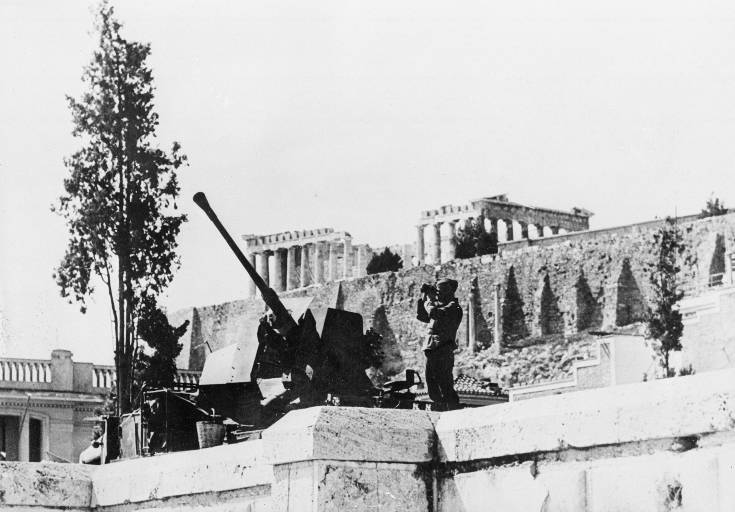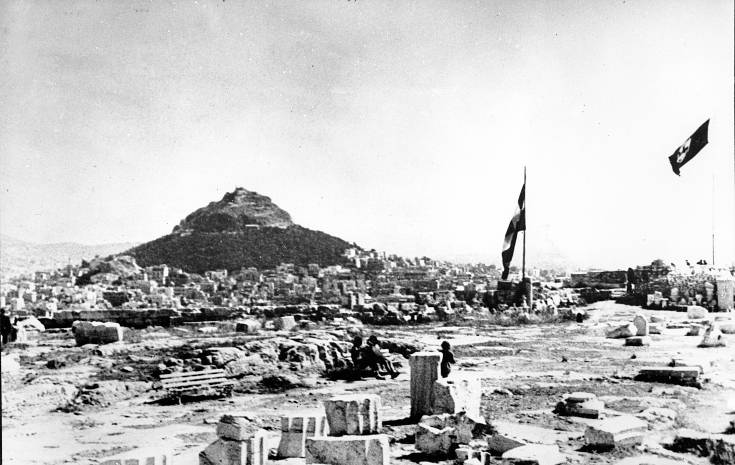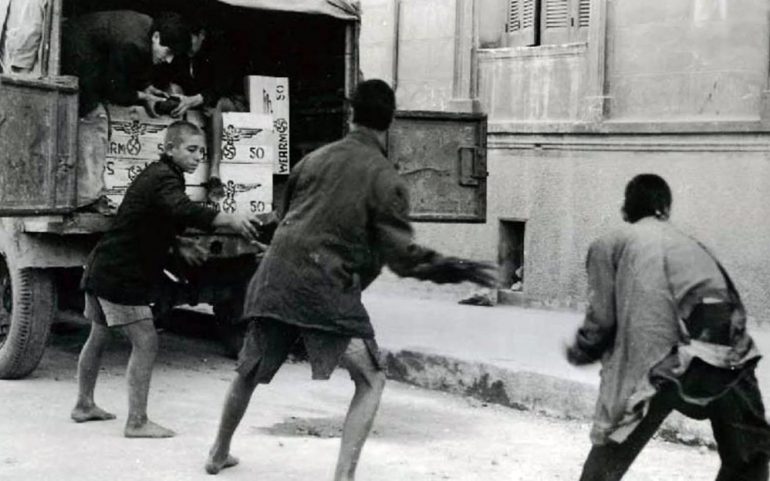On September 1, 1939, Adolf Hitler's Nazi Germany invades Poland and becomes the beginning of his bloodshed in Europe. World War II.
Greece was initially an observer, but in October 1940 it became involved in the war after the "no" in the ultimatum of Benito Mussolini for the occupation of strategic positions in Greece by the Italian army.
The Greek army withstood the Italians, repelled the enemy over the Albanian border, but the Wehrmacht attack in April 1941 put Greece under military rule. occupation which lasted until October 1944. It is noted, however, that some parts of the country, mainly the islands, saw the Nazis leave by the early summer of 1945.

The period of occupation was one of the most difficult that the Greek people experienced, knowing the barbarity of the conquerors with the holocausts in many villages, the executions and at the same time they had to face the famine and the diseases.
The dark days had begun in Greece. People in the periphery could initially "overcome" the coming hunger by having the essentials in their fields, but in urban centers such as Athens, Greece, Thessaloniki and Piraeus the situation became dramatic from the first month.
Until the war reached Greece, the country was not self-sufficient. The country's production was not able to meet the needs of the population for food, as a result of which it needed imports from abroad in raw materials and food.
This, in combination with the looting, the destruction of the infrastructure, the particularly cold winter of 1941-42, but also the decision of the British government for a naval blockade deprived Greece of its supply.
Dogs, cats and donkeys were turned into… fine fillets
The famine showed its hard face in Greece and the data speak of hundreds of thousands of deaths during the occupation, due to famine. The number can not be determined, because many people died of diseases, which of course increased rapidly as not consuming the necessary nutrients caused the collapse of the immune system.
The inhabitants of the big cities, as was logical, had no way out and so in their despair they began to feed on dogs, cats, but also donkeys which at that time were useful for transportation.
In fact, the mavragorites presented the meat of the dog as a lamb, that of the cat as a rabbit, the donkey as a horse and the horse as a beef.
In the diet and vomiting of drunken German soldiers
Dogs, cats and other animals are gone at some point. The famine, however, had already "struck". Now everything was added to the diet! The famous "bobota" (cornmeal porridge), watery milk that was often of poor quality, but also of all kinds of grass, looked exquisite in front of the garbage left by the Germans.
Housewives found the most incredible ways to make a family meal, and there were special instructions from the newspapers on how they could fool their stomachs by chewing food slowly. Soups from everything unnecessary that we would throw in the trash today, such as the tips of the beans.
Coffee only from chickpeas and stones, while sugar was nowhere to be found. The aubergines replaced the minced meat, the potato peels made meatballs, just as the peels of all the fruits could be made into a drink. Of course, all this was not in abundance and any vegetable or fruit could be described as a luxury.
The most shocking of all, which has been confirmed, is that many people who overcame poverty and orphaned children living alone on the streets, even ate the vomit of drunks. Nazi soldiers outside taverns.
The cities experienced the big wave of famine, but in the villages of course the situation was not ideal. The only difference is that there people could survive, having more goods available, such as fruit, some wheat or cereals and some animals.
Black market and a house for three cans of oil
The cost of living had skyrocketed with inflation and the collapse of the economy. It is indicative that in 1944 one drachma was equivalent to 50 billion pre-war drachmas.
Then, the black market launched. In order to get some oil or meat, people even gave all their property.

Prices "took off" in a short time. In the first year the price of bread went up almost 90 times, the beans from 35 drachmas per oka were found at 300 drachmas and the oil that was necessary for diet turned into "gold".
An ounce (equivalent to 1.285 grams) of oil was sold before the war for 44 drachmas. Immediately after the occupation the amount reached 800 drachmas, while a year later the oka cost 4.500 drachmas.
At that time tens of thousands of houses, homes and plots were sold, with their owners effectively exchanging them for food. A detached house, moreover, was worth as much as three cans of oil, according to the reports of the people who lived in those years.
